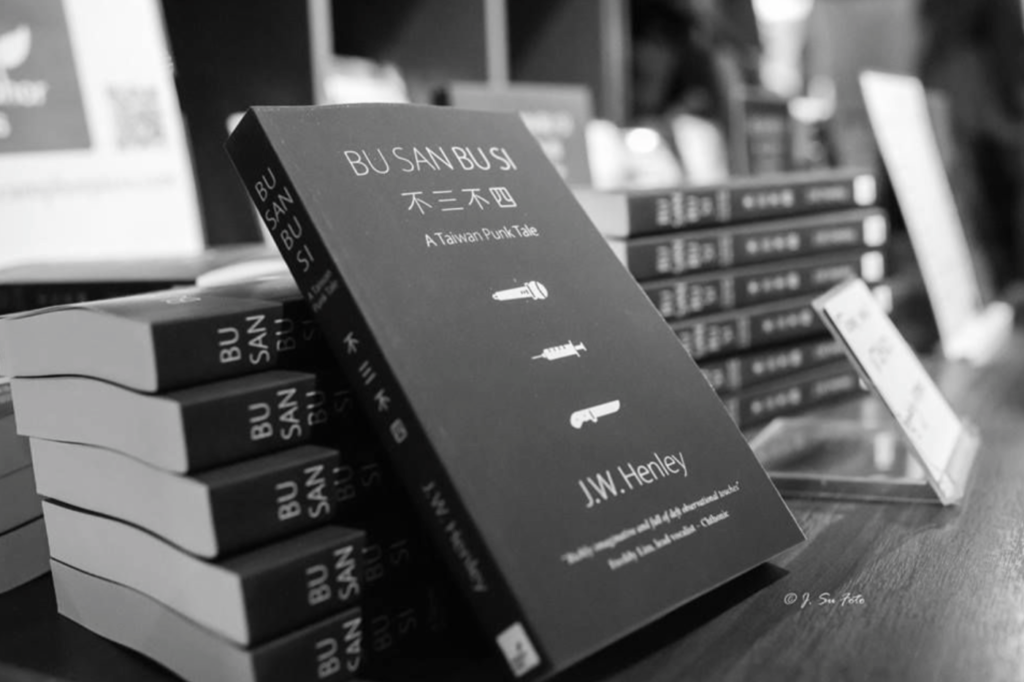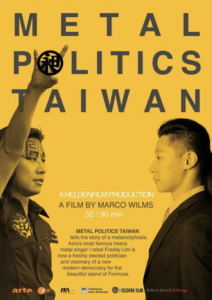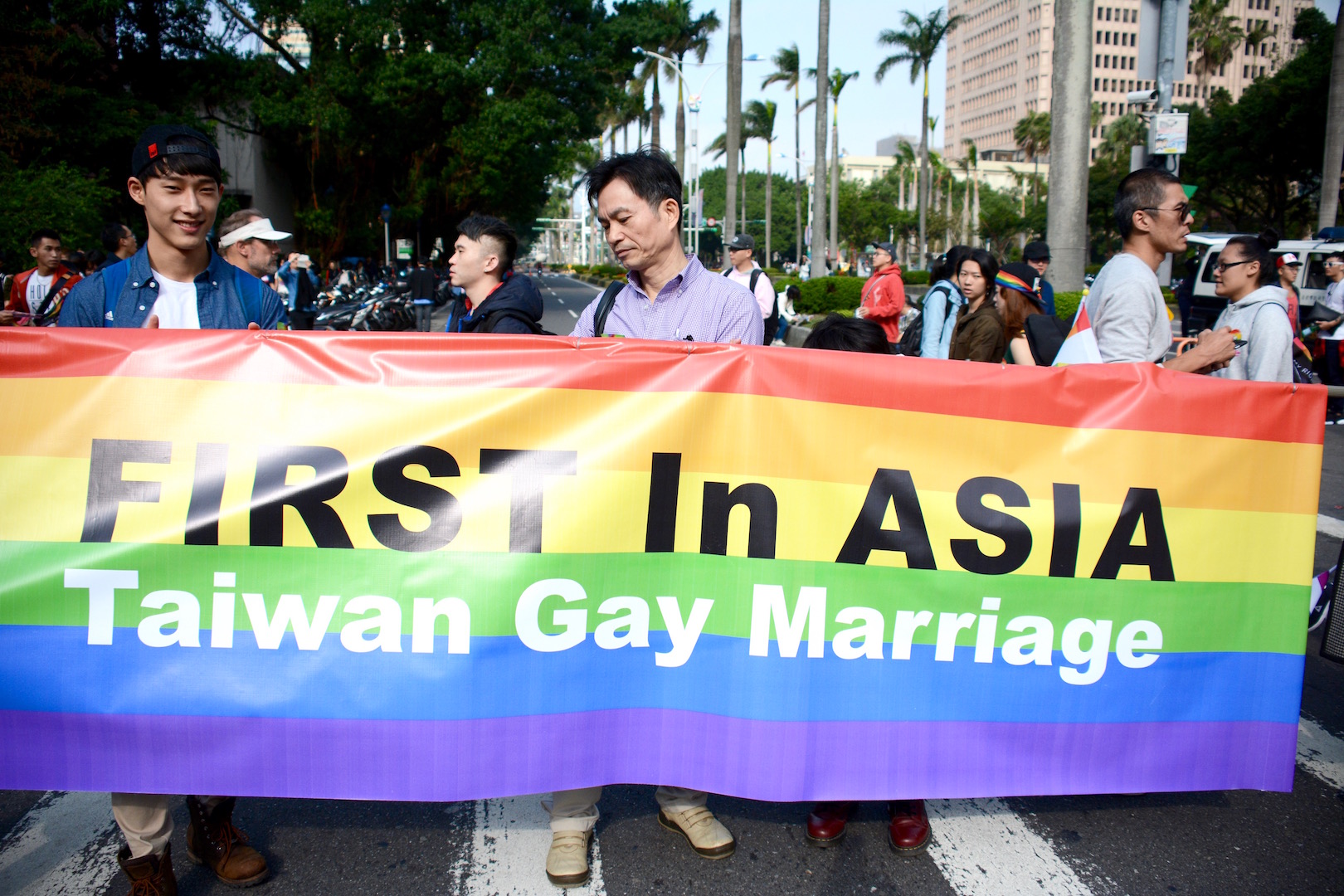Traditional soft power has its limits and often fails to reach young people. New means of connecting Taiwan to the world, such as novels, film and metal music, can play a huge role in putting the island-nation on the map.
Soft culture plays an important part in securing international recognition for any nation. With U.S. soft power in Asia reportedly crashing, it is essential that Taiwan, faced with isolation and global ignorance about its existence, take up its own soft power initiatives.
Besides a few famous contemporary works such the novel Green Island by Shawna Yang Ryan and The Food of Taiwan by Cathy Erway, it is often difficult to find works abroad that are set in Taiwan. As Erway noted during her struggle to find a publisher, it was difficult to convince anyone that Taiwan deserved a cookbook, especially as many didn’t seem to know the island exists in the first place.
While TV shows such as Eddie Huang’s Fresh Off the Boat and Jenny Yang’s stand up comedy do their part to inform an English-speaking audience about the nation’s existence, it is usually from a transplanted perspective. Both Huang and Yang, for example, were primarily raised in the states — Huang is American-born and Yang relocated to the U.S. at the age of five.
For the Taiwanese government, meanwhile, the soft power aspects of bubble tea, night markets, culture and gorgeous scenery have their limitations. With brittle relations across the Taiwan Strait and U.S. President Donald Trump’s current focus on China and North Korea, some people may crave a deeper understanding of the complexities surrounding the island but wouldn’t know where to turn to get their information.
Fortunately, new media releases — a novel, a documentary, and a movie — are poised to help an international audience know Taiwan on a deeper level, albeit through more creative means.
Fiction
On a quiet Saturday earlier this month at a record bar befitting of its subject matter, the novel Bu San Bu Si (不三不四), a Taiwanese punk tale, had its official launch. Its author, Joe Henley, is an unlikely character: a Canadian expat who has called Taiwan home for over a decade. In a gruff yet eloquent presentation, Henley detailed his experience as a participant observer of the island-nation’s robust indie music scene.

Photo: J.Su Foto
Henley, who is also a metal vocalist, said that in his 12 years living in Taiwan, he came to understand how much politics and the conflict with China, as well as Taiwanese identity, influence the local music scene. Indeed his first novel, Sons of the Republic (which was last seen being auctioned for more than US$400 used on Amazon), is a murder mystery in which cross-Strait relations play an integral part.
A representative from Camphor Press, publisher of Henley’s novel, was also on site with a display of the many books published by his company that focus on the island-nation. Aside from Bu San Bu Si, Camphor Press has bought the rights to many out-of-print books about Taiwan, such as Formosa Calling and A Pail of Oysters.
Narrative occupies an unconventional yet deeply inspirational role in getting to know a locale and in influencing reader perceptions. In his foreword to A Pail of Oysters, a novel written at the height of the Cold War when the U.S. was firmly backing Chiang Kai-shek’s regime and marketing Taiwan as “Free China,” Jonathan Benda of Northeastern University points out that author, Vern Sneider, whose book is highly critical of the regime and written from the standpoint of an oppressed half-indigenous, “argued that fiction ‘gives a pattern for action’ … by suggesting what Americans could do to prevent further tragedy … to make Americans think in particular about the regime they supported in Taiwan, but more generally about what the U.S. role in Asia should be.”
…Headbangers…
Many Taiwanese music bands, especially independent ones, also focus on national identity and related issues. FireEx (short for Fire Extinguisher) wrote “Island’s Sunrise,” the theme song for 2014’s Sunflower Movement, and performed at President Tsai Ing-wen’s inauguration in 2016. Initially, “Rise Up,” by island favorites MayDay (dubbed the “Chinese Beatles”) was the chosen anthem for the Sunflower protesters, until their China-based fans voiced disagreement. Unlike their more commercially successful counterparts, independent musicians can elect to forgo the Chinese market.
Other bands that focus on Taiwanese identity include Crescent Lament, a symphonic metal act that touches on Taiwanese history during the colonial Japanese era. The band has performed in Belgium during a music festival devoted to female vocalists. Rising stars Flesh Juicer, who are poised for yet another tour in Japan, utilize traditional Taiwanese religious music and folklore imagery in their snappy electronica-inundated deathcore and hardcore music. Indigenous punk band Outlet Drift, whose members dress in psychedelic renditions of traditional A-mei clothing for their energetic live performances, recently participated in Canadian Music Week as part of Taiwan Beats events. These international exchanges provides a very intimate experience to a dedicated audience.

Taiwanese rock band FireEx perform at a concert for DPP presidential candidate Tsai Ing-wen on Jan. 15, 2016 (photo: J. Michael Cole)
As a niche albeit rapidly expanding market, metal music and its narratives give Taiwan a unique access to international media and to an audience that is more vociferous than the typical run-of-the-mill news outlets. As Kim Kelly notes in her 2015 piece on the economic power of metal fans, “there are thousands upon thousands of metal bands out there to whom fans may pledge fealty, and they do so with an (economic) vengeance.”
“If all the world leaders were swapped out for metallers, think of all the issues we would finally have the courage to face!” Chthonic frontman Freddy Lim, at the Metal Hammer Golden God Awards.
When Freddy Lim, the vocalist for Taiwan’s first and most famous metal outfit Chthonic, ran for public office, he garnered international attention, appearing on BBC radio multiple times as well as Bloomberg, CNN, the LA Times, Washington Post, and even the American edition of GQ. The band itself was the product of Lim’s frustration with the education system of his era, which was heavily influenced by the Kuomintang (KMT). The band initially focused on death metal and Taiwanese folklore and history, telling stories of indigenous gods fighting with the new Han gods as they arrived. Their look and sound has since mellowed to a more symphonic metal, though it is still heavily entwined with Taiwanese identity.
… and Film
Director Marco Wilms, who worked on Wacken: 3D, a documentary about the largest metal festival in the world, was intrigued by Lim’s political ambitions and came to Taiwan to film his election campaign. The resulting documentary, “Metal Politics Taiwan,” is currently in production. A trailer was released at an Urban Nomad event last weekend and is available on Vimeo.

Lim hasn’t sat still either. After getting used to his new position as a legislator for the New Power Party, he and the band have been busy completing their 6th studio album and recently finished dubbing for their soon-to-be-released film starring Randy Blythe of Lamb of God, one of the top metal bands from the U.S.
“It’s taken three years, but we are finally ready to release it,” says band leader and bassist Doris Yeh. “We hope everyone will enjoy this joyous and energetic film.”
The unique narratives provided in such films, novels and music have the potential to reach dedicated and active niche audiences and thereby greatly benefit Taiwan’s recognition abroad. As Lim pointed out in a recent video by the Ministry of Culture, music and movies are a great way to promote a country abroad. And given Taiwan’s limited international space, it is something that the country should systematically invest in.
Top photo courtesy of the official Chthonic Facebook page.
You might also like
More from Society & Culture
Media and Free Expression in Taiwan Are Under Attack: What Can be Done?
How can we avoid the imposition of a blanket silence which can only empower our enemies and damage our democracy? …
Taiwanese Views on Homosexuality Based on Proximity of Relationship, Study Shows
The legalization of same-sex marriage in Taiwan should be viewed not just as a culmination of years of advocacy efforts …
Challenges Remain Following the Legalization of Same Sex Marriage in Taiwan
Despite the adoption of a new law on May 17, campaigns will continue to legitimize the kind of homophobic discourse …









